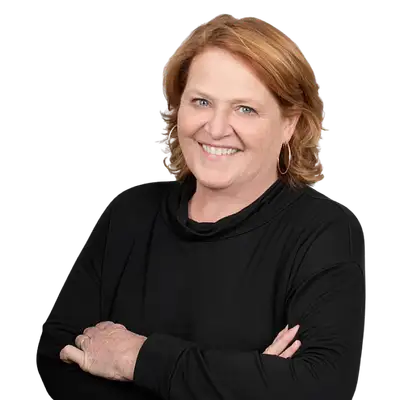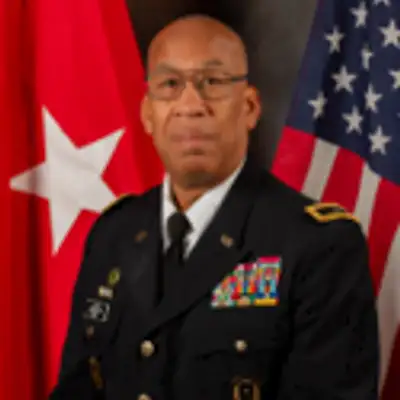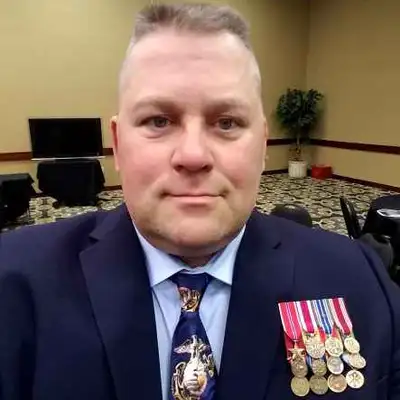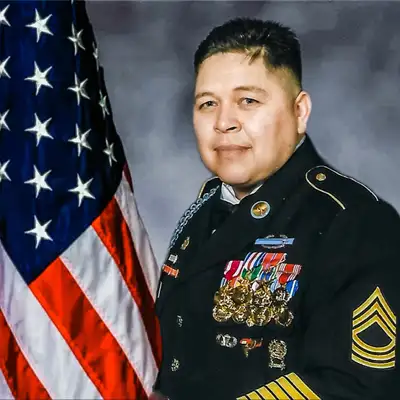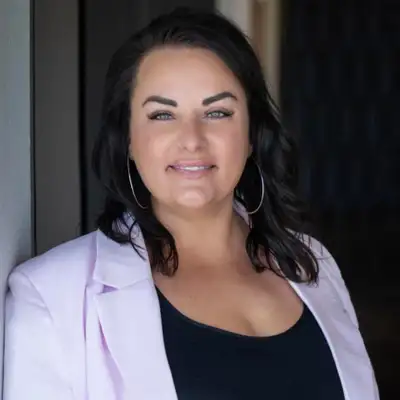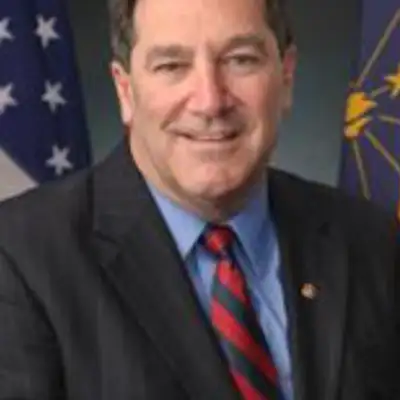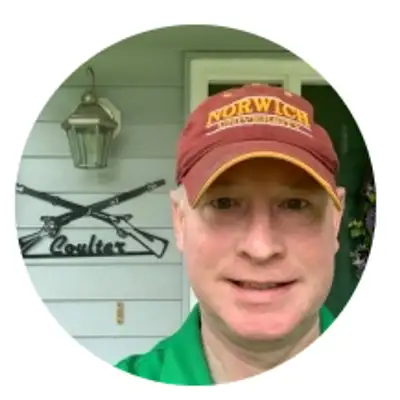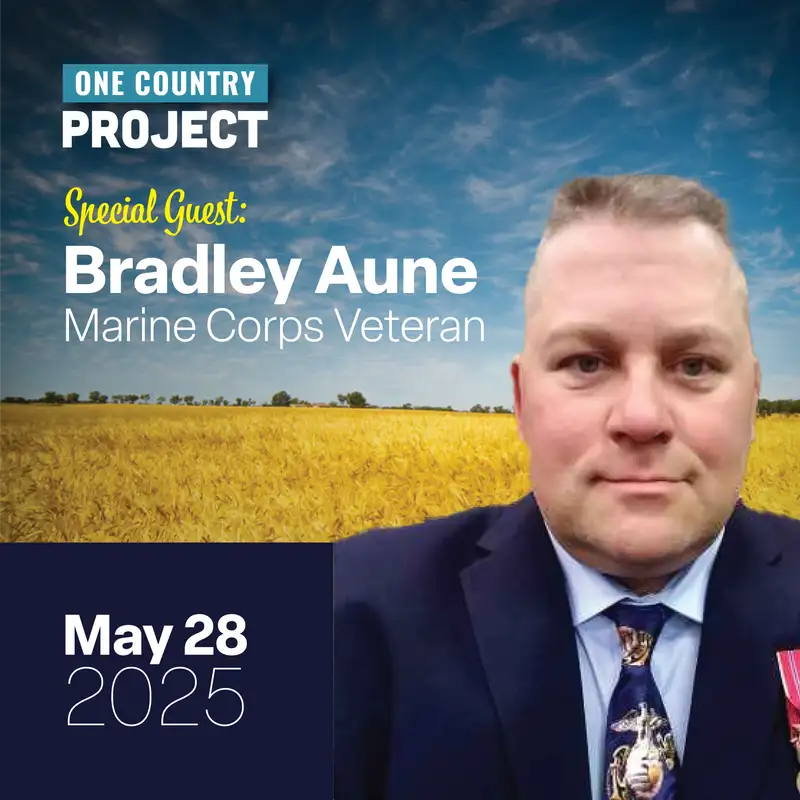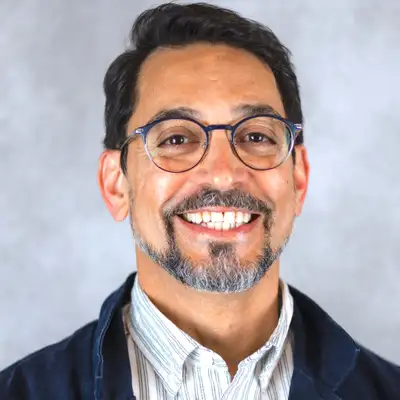Memorial Day Special: We Talked to Veterans
Heidi Heitkamp [00:00:04]:
Welcome to the Hot Dish, comfort food for rural America. I'm Heidi Heitkamp.
Joel Heitkamp [00:00:09]:
And I'm Joel Heitkamp. Monday was Memorial Day, a day we give thanks to the heroes of this country who dedicate their lives to service.
Heidi Heitkamp [00:00:18]:
That's absolutely true, Joel. And I hope that, you know, one thing that we can do is encourage people, you know, you get a day off. I get it. Just every community has a celebration of our veterans. You know, go out to a cemetery, show your support for those people who are working really hard to make this a special day. But also in memoriam to so many people who have given their lives. And so today, Joel, we're lucky enough to have a few veterans from around the country join the show for this episode, and they're going to discuss what's most affecting them right now and and how it affects the rest of us as a result of things happening right now to vets.
Joel Heitkamp [00:00:59]:
You bet, Hyde. One of our board members for the One Country Project, former Indiana Senator and member of the Committee on Veterans Affairs, Joe Donnelly, spoke with a panel of three veterans based in rural New York. Lieutenant Colonel Coulter, Master Sergeant Morales, and Brigadier General Austin. And I was also truly honored to talk with Bradley Aune, a Marine who works to help veterans readjust to civilian life once they've returned home.
Heidi Heitkamp [00:01:30]:
Your conversation with Bradley is particularly poignant, Joel. And so we're gonna hear from Staff Sergeant Jessica Petrick from North Dakota Army National Guard. And I think these conversations are so important to have to expose people if they - I mean, you and I grew up with veterans in our life. In fact, I think every one of our uncles, with the exception of one, put on the uniform and, and served their country. And trust me, when you come from a family our size, that is a lot of uncles, and these are amazing veterans and amazing families who have sacrificed. Now let's hear from them.
Joel Heitkamp [00:02:10]:
You know, this is a real thrill for me. I get to visit with Bradley Aune. Bradley is a retired military veteran who now, you know, uses that past to work with transitioning service members and homeless veterans, assisting them in overcoming barriers to employment. It's. It's important work. Bradley, a veteran himself, a little bit intimidating, ladies and gentlemen, with what he earned in service to this country. You know, it's a great honor to, to welcome Bradley to the Hot Dish. Good to have you on, Bradley.
Bradley Aune [00:02:41]:
Hey, thanks for having me, Joel. I appreciate it.
Joel Heitkamp [00:02:43]:
You know, before we get started, I just want the listeners to know that personal experience. Talk to me about that. Tell people about your services as a Veteran.
Bradley Aune [00:02:53]:
Well, I enlisted in the Marine Corps in 1985, went through infantry school, went through a bunch of different schools, you know, survival skills training in the jungle and mountaineering schools. I was in combat in the Persian Gulf in '87 with Operation Earnest Will, escorting oil tankers in the Persian Gulf. When I left the Marine Corps after my enlistment, I went back home to Mayville, to Mayville State College. Got my degree there. And while in college, I enlisted in the Army National Guard in North Dakota. Did 18 years with the Army National Guard and while serving in the Guard was deployed to Iraq for 18 month deployment. And I was the First Sergeant for the, for that unit when we went to Iraq in 2004 and '05. And I earned the Bronze Star Medal for my leadership of that unit while in Iraq.
Joel Heitkamp [00:03:44]:
I told you ladies and gentlemen, how intimidating it is. Thank you for that service to this country. It just amazes me the, the price that, that individuals like yourself pay for all of that. And Bradley, just for the record, I, you know, I've been on a number of Honor Flights, and what I've learned on those honor flights with you Marines is not to say you were a Marine.
Bradley Aune [00:04:09]:
That's right. Once a Marine, always Marine.
Joel Heitkamp [00:04:12]:
Exactly. You know, the daily work you do, the work you do each and every day on behalf of veterans, describe that to people.
Bradley Aune [00:04:20]:
Well, I get the opportunity to work with vets. You know, I go into the, you know, the homeless shelters, different venues where they hang out at, drop in centers, downtown, on the street, wherever the vets are at, you know, we get to go visit with them. They come into my office, you know, and some are homeless. Some are transitioning out of the military, some are transitioning from one job to another. Some may be laid off or fired or just coming out of college or in college. I work with the Veterans Service Groups, our veteran - Student Veterans Groups on the campuses, locally here. So all shapes and sizes of veterans. So it's a great variety of folks to work with and try to help them get where they want to be.
Joel Heitkamp [00:05:04]:
What incredible rewarding work that must be. But you get a chance to sense it and to know it from a firsthand experience. If you could explain that to folks.
Bradley Aune [00:05:16]:
You know, meet them where they're at. You know, some are, you know, at high levels of education and looking for something else. And others, you know, came out of the service and maybe physically or mentally treated those situations with alcohol or drugs and found themselves in the prison systems or wherever. And, you know, we do outreach at the Cass County Jail, the Jamestown Correctional Center. So I meet vets in there and trying to get them out of there. I'm meeting a vet tomorrow that's involved in Veterans Treatment Court up in Grand Forks. So you know, they're working their way out of situations and we try to get them on the right path or, you know, connect them to resources in the community. And part of that is getting them employed, you know, and then I connect them with people to find them housing and, and get them where they need to go.
Joel Heitkamp [00:06:01]:
Before we get into, you know, the money - what it takes to run a program like this, what it takes to make sure you have the ability to achieve the goals that you just talked about. What I want to visit with you about is how hard is it to get that veteran. I mean, I have so many friends in my life that are the way you just described, but how hard is it to get them to admit that they need that help?
Bradley Aune [00:06:27]:
Yeah, you gotta, like I say, meet 'em where they're at. You know, some are to that place already and are, you know, through other avenues, they've decided, hey, I need to get there, need help. Some are not quite there. You know, I went through my own struggles with PTSD and I have a degree in psychology and I, you know, think I have my act together and I was struggling with PTSD myself to the point where I was like, maybe I need to talk to somebody. And I reached out to the VA myself and, and ended up going through PTSD treatment like 13 years ago and, and still go to groups that, you know, maintain my mental health. So, you know, we don't always see it ourselves and, and you know, family members, support systems - some people don't have support systems and they find their support in the bottle or in drugs or alcohol, you know, whatever. So just trying to find a support system. And that can be your local veterans organization, it could be the VA, the county Veteran Service Officers, it may be whoever that can help you get to the right place and connect to the community. I've had them sitting at my desk and say, you don't need a job, you need to go talk to someone at the VA.
Joel Heitkamp [00:07:37]:
So to do that, you know, it takes a commitment. It takes a commitment by the government that quite frankly, the individuals you're talking to actually served, you know, all of us. Now the cuts that they're talking about to federal funding for veterans, families, I mean, these have to be devastating for you, Bradley.
Bradley Aune [00:07:57]:
They are, you know, personally as a veteran, you know, when you look at these cuts that come down the line, you know, they, they start talking about these programs - the suicide hotline, they're cutting funding to that, you know, are talking about it or have done it. You know, from one day to the next, you know, stuff's being cut or has been cut. Benefits for SNAP programs, Medicaid, Medicare. All these funding sources directly affect veterans as well as everybody else. They talk about federal jobs. All these funding sources typically start at the federal government and whittle themselves down to local entities. You get all these housing grants that we get at the local level come from the federal grants. And so then there's no housing. So then they talk about, we have homeless vets. Well, it's going to make more homeless vets because there's less grants, less money to house vets.
Joel Heitkamp [00:08:45]:
What about North Dakota just going through a legislative session. I know that you track this quite a bit. Did they come through? Did they understand the need? Did they put their money where their mouth is?
Bradley Aune [00:08:57]:
I know they did put some money on the table and that's appreciated. But the federal money is the big money and that's where the problem comes in. Because these HUD VASH, the HUD money, then you have VASH, is the veteran side of the vouchers. And that's where all this money gets portioned out, so to speak, for the veteran side. And, you know, I'm not an expert in that world at all. I'm more on the employment side of things. But I know it all trickles down and they start cutting programs when it comes to housing, you know, even like employment programs, money starts to start chipping away down the line and training programs get cut. And, you know, then it just starts with the widdle whittle away at the opportunities that folks have, you know, and veterans. I know 30% of the federal workforce is veterans.
Joel Heitkamp [00:09:51]:
Well, let's talk about the employment side of this, because everywhere I go, people are looking for workers. You know, how do you place the individual that you've met who could use that employment and fit that into the life and what they're going through? I mean, how do you put those two together?
Bradley Aune [00:10:09]:
Well, I, you know, like I said, I get all random veterans coming through. And so when they come in, you try to see what their skill set is. And, you know, veterans, you know, the military has every occupation in it. You know, so I get a, someone who might be a purchasing agent in the military. They come in, but they might not have a degree. They might have done this job for 10 years. They might be excellent at it, but they don't have a finance degree. So then it's like, oh, you may have to go to college now, or I can try to talk an employer into maybe taking this person on. But you know, a lot of times you got to go to school. So then we got to get them in the GI Bill or the, you know, some type of funding source, the VA Voc-Rehab. But then they have to get a VA disabilities to get that to go to school and then try to get funding and live while they go to school. So when they start cutting all these benefits or if they do cut benefits to veterans for housing, or if it takes forever for them to get a service-connected disability, qualify to get benefits for education or to get to a service-connected disability so they qualify for VA Voc-Rehab. You know, it just kind of slows down the whole process and muddies the water for them getting education or credentials to get that good job that they want.
Joel Heitkamp [00:11:23]:
The other part though, that instantly popped into my mind is older than average students. You know, how do you deal with that?
Bradley Aune [00:11:31]:
Well, I was a 23 year old Marine vet and I was an old man at that point, you know, going there and with these kids and it was a culture shock to go walk in there, you know, after being around the world on a ship twice and in combat and, you know, it was, I, luckily I had a good mentor. My advisor just happened to be teaching college in Subic Bay, Philippines for the past 10 years and he took me under his wing and kind of got me, you know, stabilized there. But, you know, they have the Student Veterans Programs at NDSU, MSUM, you know, those kind of programs. And then, but that takes people that care and people that put, you know, programs, they have grants that help support those programs as well, or the campus has to put effort and time and money into those. So I, you know, I'm lucky. I just kind of stumbled into it and I grew up there, so most of my professors I knew from growing up there, they might happen to be my Sunday School teacher or something like that, you know, so. So that kind of helped me along the way, yeah.
Joel Heitkamp [00:12:34]:
I'm, I'm curious about this. Had you made up your mind before you left active service? Did you know what the game plan was?
Bradley Aune [00:12:44]:
Well, I know I needed a degree. I had planned on being a U.S. Marshal. That was the plan, you know. Well, I wanted to re-enlist and be an Embassy guard, but they wanted me to do another deployment overseas before they sent me to Embassy school. And, and I'm like, I just did. I spent two and a half years on ships, I've got three deployments already. Like, you need one more deployment? I'm like, well, I already did three. Well, the first two don't count, you know, I'm like, what the hell? Those don't count? Okay. So then I'm like, well, how about this Early Out for Education deal. So, yeah, yeah, you can get out. So two weeks later, I was out of the Marine Corps going, what the hell just happened? You know, so I'm like, oh, I want to be a U.S. Marshal or work for the CIA. I had some great ideas. So I got, I'm going to get this degree. And, and so I was on, I told my advisor, I'm like, I'm on a four year plan, not the five year plan. I need to get the hell out of here because I got the GI Bill. And. And then I started taking all these psychology classes. I'm like, well, maybe I should be a counselor, you know, that kind of thing. And, and then I ended up being a Juvenile Probation Officer for 15 years. And then now I'm a job counselor. I'm like, I don't know how that all happened, but it worked out pretty well. So, yeah, and that was another transition too, because when I came back from Iraq, my mentality had changed and I went back to that job and I was not fit for that job anymore. My mental health had changed and I had to find a new career. And that's when I transitioned to helping veterans. And that was a good transition for me for sure.
Joel Heitkamp [00:14:07]:
So let's talk about money again. I want to bring it back to that, Bradley. You're sitting there in a position where you know you're getting the job done. Let's just acknowledge that, you know, there's a need and you have the ability to have the results, whether or not they have that employment that they're going to succeed at, advance at all of that, I have no doubt that, that, that's not the problem. The problem is having the money to do it, to just do it. You know, there's a lot of people that are listening to us here on the Hot Dish who are really good at walking up to people like you and thanking you for your service. Right? I mean, they are. I'm not trying to diminish that. But the one way they can thank you for your service is to make sure, you know, that your program's funded the way it damn well should be. And so I want you to talk to the public about that. Everybody that's listening to you on the Hot Dish.
Bradley Aune [00:15:00]:
Well, and I do appreciate when people do come up to me and say that and other veterans do as well. But the contract we all signed, and when you signed a contract with the government, you give up your rights to your constitutional rights. You have the UCMJ and you become property of the government with that contract. That's a lifetime contract with the government. You know that you have access to the VA for health care. You have access to government programs like the GI Bill, the home loan guarantees, those kind of contract benefits that are given to you for the rest of your life. And so I know we're talking to vets now, they get offended when they hear the government saying, well, we don't think - we might want to reevaluate the service connected disability stuff, you know, these are "entitlements." They're not benefits. No, they're benefits because we signed the contract with you when we were 18 years age. You know, they get frustrated when they start removing rights. Constitutional, you know, when you say, well, the Constitution, this and that. No, we, we took an oath to the Constitution. We took it seriously. You've been on the Honor Flights. You see these guys take it seriously. They're nine years old, they still believe in that oath. And then those guys, I see them when I go to the VA, I get all my health care at the VA, you know, and it's frustrating. I was there for some dental stuff here the other day and I got my next appointment and I got to have some reconstructive stuff done on one of my teeth and I gotta wait till September, the next available appointment, because they're down a dentist and they can't get one because of the hiring freeze and this and that.
Joel Heitkamp [00:16:35]:
And you know what makes me the most, Brad. Again, I realize we're going back to the Honor Flight and that's an experience I think I can bring to it to that would relate to some of what you went through. But the people that do this, you know, the people that are working at the VA they're, they're working in fear. I mean, they really are. Right now they're sitting there wondering if they're going to have a job tomorrow, if they're going to get cut. They look around at each other and say, well, which one of us is more valuable? Which one of us costs more? I mean, nobody should have to go to work every day that way.
Bradley Aune [00:17:09]:
Oh, I know. I have, I know for a fact I have friends, I have former clients who have been let go from the VA for no reason other than they are on probation. And probation - and a lot of people are not aware that every employee starts the federal government on probation. That's just a thing. It's up to a year. And sometimes when they get promoted, you could be the best in that position, if you get promoted to a supervisory position, you're now on probation for that position. So when they go in and say a blank swipe and say, if you're on probation, you're basically fired. Probation is not a bad thing at the VA. It's a structural thing. It's a procedural thing. And so that kind of clean sweep kind of...Then they're like, oh, we shouldn't let all those people go. Then they try to hire them back. You know, that kind of whiplash, kind of craziness that is affecting people's lives, it's affecting veterans healthcare, it's affecting veterans benefits. It's scary, really.
Joel Heitkamp [00:18:07]:
You know, Bradley, every day you get up and you make a difference in veterans lives and you've got that experience. I hope that the Hot Dish helps you here in terms of getting word out, because it isn't just your state, but it's a lot of states that are listening to you. What would be your advice to that veteran that's struggling with some of those same issues that you are?
Bradley Aune [00:18:29]:
I would just, you know, tell them to advocate for themselves, advocate for all veterans, to all, for all people anyway. And talk to your county Veterans Service Officer, no matter what county you're in in America. Talk to your local VA folks, try to support them, talk to your politicians, let them know what you really feel. And just talk to your local leaders, you know, and rally the troops. You know, those veterans. You know, if you get a room full of veterans, people will listen.
Joel Heitkamp [00:18:57]:
I would say thanks for your service because you've earned it. But I will tell you this. The one thing I've learned many walks through my life is don't piss with a Marine. I've learned that big time. Thanks for giving us the time today, Bradley. Appreciate it.
Bradley Aune [00:19:13]:
Appreciate you all. Thank you.
Jessica Petrick [00:19:19]:
My name is Jessica Petrick. I proudly served as a Staff Sergeant in the North Dakota Army National Guard for six years in the 957 Multi-Role Bridge Company that included a deployment to Iraq in support of Operation Iraqi Freedom from early 2003 until about mid 2004. My deployment took place my last semester of my senior year. So as my peers were preparing for graduation, I was kind of in the unknown overseas in Iraq. Also, as a female soldier, there were a lot of challenges. Obviously, being a female in the military is not easy. Maybe it's gotten easier since I've been in. It's, it's been quite some time since I was in. But of course I faced a lot of challenges of resilience, testing my strength, really commitment to the people, my soldiers and the people that I served with, and of course to the mission. Memorial Day really means perspective. The service that I have done has given me that perspective on life, on freedom, on what really matters. And Memorial Day is really a reminder of what comes at a cost and what that cost is. We've lost a lot of people since we've been home from suicide. And you know, I don't want to go to any more of those funerals, but I will continue to carry each of those individuals' memories with me every day and continue with that perspective. You know, my deployment really helped shape my life and really gave me a deeper appreciation for what service really looks like. You know, I'm really grateful for the people that didn't make it home. There were quite a few were injured or killed while I served in Iraq and really their courage and sacrifice and their legacy has really left a lasting impression on me and I carry that memory everywhere also. We have a very strong bond between those that I served with, especially the women that I served beside. We really did this together and we leaned on each other in those hard moments. I mean, there's been a long or a lot of times since I've been home that, you know, people have just reached out to me and just needed somebody there. Just really showing up is what they need. And a simple thank you really goes a long way. Think about how important those around you are. You know, I've really started to really focus on just myself and my family and the mission of the nonprofit that I work within. We have about 650 employees. We serve individuals with developmental disabilities and low income families through West River Head Start and early intervention services. It's a great place to work and it really gives me a purpose now that my kids are grown and don't need me as much anymore. So it's a great place to be and be a part of. I have worked a lot of jobs where I wasn't provided health insurance and so I've had to rely on Veteran Services and access is, is hard. You know, the closest veterans hospital and a lot of those services are over three hours away. So it's not immediate. But you know, I have gotten the services that I need. I was diagnosed with bladder cancer, which I do attribute to being within Iraq. And the VA has helped through that process. Does it need improvement? Absolutely. Is it a service that's needed? Absolutely.
Joe Donnelly [00:23:18]:
Hello, everybody.
Joe Donnelly [00:23:18]:
I'm Joe Donnelly, former US Senator from Indiana and a One Country Project board member. Today I'm speaking with three retired military veterans. They have served our country so extraordinarily well, and we want to talk about the issues they're facing right now with veterans care and with veterans issues. Talking with me today, I have retired Brigadier General Art Austin, retired Master Sergeant Francisco "Frank" Morales, and retired Lieutenant Colonel Sean Coulter. A quick rundown. Lieutenant Colonel Coulter served honorably for 23 years with assignments in many, many places, including Iraq, and was a Senior Advisor to the Afghan Army, former Professor of Military Science at St. Bonaventure in Olean, New York. Master Sergeant Morales is currently the Director of of the Militarily Assigned Student Program at St. Bonaventure University. He was awarded the Silver Star Medal, which was bestowed for his heroic actions on August 26, 2006, when Morales' Unit was ambushed by 60 Taliban. He was inducted in 2024 by State Senator George Borrello in the Senate Veteran Hall of Fame. Brigadier General Austin served in the Army from 1977 to 2014. He served during the Cuba Fefugee Crisis, Operations Desert Shield and Desert Storm, Guantanamo Bay, Cuba, for Operation Enduring Freedom and for Operation Iraqi Freedom. Austin has also received numerous medals and awards and is an inductee in the Michigan State University ROTC Spartan Battalion Hall of Fame. He currently lives in the small town of Cuba, New York, located about 70 miles south of Buffalo. To all of you veterans, to all of you people who have cared for our country so much, thank you for being here with us today.
Art Austin [00:25:12]:
Thank you.
Joe Donnelly [00:25:13]:
So when you look at what the VA can do, what the government can do for our veterans, because it was earned with your blood and with your treasure, what were you hoping for and what are you seeing? General, would you like to go first?
Art Austin [00:25:29]:
I went to a course that they called, we basically called the Charm School for the Army. And we had the leader of the VA process get up and talk about, you know, improvements at that time. And that was around 2011 or so. So I had the concept and idea that, you know, once I get out, I'm going to make sure that I get into the process to see what is actually being done versus what I've heard. And I had heard a lot of issues as far as patient care availability and those kind of things. Frankly, when in 2016, my first contact with the VA system, I was disappointed. I spent a lot of time following that, trying to figure out what right looks like, right folks, and that kind of thing. I'm glad to say that there has been improvements from that time, but it's a journey.
Joe Donnelly [00:26:26]:
It's a journey. Master Sergeant?
Frank Morales [00:26:28]:
So I retired in 2010. I had no idea what was available to me. When we're in active duty service, we're really not thinking what's next. We're thinking three, six months, a year ahead at the most. But crossing that gate into the civilian side of our lives, into the VA portion of it, we don't get a lot of information when we're getting out. We have basic information of what's going to happen for us, but there's no clear path on what kind of medical coverage is there for us for being retired, if we're getting some kind of disability rating to help us out financially, how that works with retirement. And around that time, there was a big change going on with it. So there was a lot of, a lot of unknowns, especially when, you know, you know, I was 38 years old, retiring from 20 years of active duty service, married, three kids. You know, I'm still wondering what I was at that point, still wondering, how is my medical stuff going to be coverage, how much money am I really going to be making? What are they going to be covering? And active duty army doesn't have a lot of time to really put all that information together on that process out, so, so there wasn't a lot until you actually are thrown into the water, so.
Joe Donnelly [00:27:43]:
Lieutenant Colonel?
Sean Coulter [00:27:45]:
Yeah, slightly different take, I think. Rookie retiree, 2023...or 2021, I got out, so I was a little later than these guys. And a lot of changes on the Army side of the house as far as how they handled the retirement process and educating people as they're transitioning from the military. Had the benefit of a very good transition class based out of Carlisle Barracks down in, down in Pennsylvania. Learned how to spell VA, so big success for them on their part, I guess. But having, you know, 10 fingers, 10 toes, didn't think a whole lot about medical care. But, you know, another big benefit I had is, you know, guys like Frank, guys like General Austin kind of showing me the way as I got out and kind of looking back to how we all operate in the military. Military, it's a bureaucracy like anything else. I mean, no one does anything alone in the military. You rely on trusted advisors, your battle buddies. You know, people to your left and right that have gone before you. And for me, that's how the system has worked. You know, these guys helped lead the way, showed me, you know, to go left when I should be going right and connected me with the right people in the process. And I've, I've had a very good experience up to this point between the VA disability and the healthcare.
Joe Donnelly [00:28:49]:
So in effect, you learn, you learn as you go, as you need something.
Sean Coulter [00:28:52]:
Yeah, I never asked really the VA, I'd always talk to these guys or there's a couple other folks in the area who have helped me out. Now to help my wife out as she goes through the VA for disability process.
Joe Donnelly [00:29:02]:
Is Buffalo the primary VA center for some of you?
Sean Coulter [00:29:05]:
Yeah, somebody knows. I think Bath is another site, right?
Art Austin [00:29:08]:
Yes.
Sean Coulter [00:29:08]:
Okay. But mainly Buffalo.
Joe Donnelly [00:29:10]:
One of the challenges. I live in South Bend, Indiana. One of the challenges we had was we have a significant amount of veterans and for most any care of significance, we had to travel about two, two and a half hours to Fort Wayne. We were fortunate that we were able to finally get a VA health center in the South Bend area to take care of most everything except for the hospital related type things. So the goal, I think for the VA has been how do we make it available to folks in rural areas and what other ways can we extend care in rural areas?
Sean Coulter [00:29:46]:
So as far as care in rural areas, as I mentioned, my wife is going through the VA disability process. She was a veteran, got out after seven years, eight years, didn't do anything VA related, you know, until just last year. One of the biggest issues I, I did have when I went through the process, I traveled three hours to Cleveland for a PTSD checkup or something like that. A lot of trips on Buffalo for very routine things that we could get done in the local area. Now my wife just got a letter from the VA and they've got another subcontractor that they're working for them that her appointment's right here in Olean. So I think the message is getting out. You know, plenty of doctors here, there's no reason why the VA couldn't subcontract through them to do the CMP checks or what do they call?
Art Austin [00:30:25]:
Yeah.
Sean Coulter [00:30:26]:
So looks like they're the silver lining to some of the work that you've been doing.
Joe Donnelly [00:30:30]:
Is it pretty important to be able to get it right there locally when you can?
Art Austin [00:30:33]:
With a city like Buffalo, especially from November to April, you know, 8ft of snow in Buffalo, I'm not going, so.
Joe Donnelly [00:30:44]:
Right. It's, it's. Your town's about what, 70 miles away from Buffalo?
Frank Morales [00:30:49]:
It's 70 miles away, but it still takes an hour and 40 minutes to get there.
Joe Donnelly [00:30:53]:
So what do you think is the best way as our service members are heading toward retirement or heading toward getting out? How do we get the word out the services that are available, you think from the VA?
Art Austin [00:31:08]:
I think it starts with big Army. Before you leave the active service, they need to have the right folks with the right message taking care of the soldiers before you leave. Because once you get here, you know, the biggest problem that I face with the VA is they have civilians, great hearts. You know, they are dedicated to duty. However, they don't know who they're dealing with. They don't speak army speak. They don't understand the service behind it. And I would say that was my, my biggest issue. That's what I faced in 2016.
Frank Morales [00:31:42]:
And in our area here is that we do have a VA clinic, but there wasn't a lot of information that you could actually go to the clinic and apply for to get into the VA through the clinic itself, we're supposed to use, like, the American Legions, programs like that are supposed to be out there to help veterans get into the system. But the issue with that is a lot of veterans won't go to the American Legions because there's a big stigma that the Legions are just bars. And nowadays a lot of vets don't want to go to the bars, you know, the smoking areas. And, you know, we need a different type of building in our area that says, hey, come here, and we'll help you get to what you need, you know, and, and yes, it should be like a, like a bigger version of a clinic here compared to the hospital where, you know, there's just not enough information of us to be able to go into the clinic and register, you know, because we were sending guys to Buffalo all the way up until about four years ago, until we found out you can actually do some stuff at the clinic, but you don't know until you kind of stumble into it.
Joe Donnelly [00:32:47]:
Right, so do you have a - is there a county VA officer who kind of tracks everything for all of you?
Frank Morales [00:32:54]:
There is. There's a county VA officer, and then we have a state one as well. But they're not always as easy accessible to be part of. And then also you have to make an appointment, so there's only one or two people there, and veterans don't want to go somewhere and find out, well, you can't see, I can't see you because you need to make an appointment, you know, so that's another deterrence when that veteran probably took the day off to go there and just let it know because our VA representative is not out in the community letting people know, hey, come and see me so I can help you, so I can provide these services for you.
Joe Donnelly [00:33:31]:
You know what I think has been interesting is my general impression is that the vets, they like the VA, that they like the people there who they know are trying, are trying to take good care of their veterans and care about the mission. And so I've often thought it would be great if the American people understood that they're not perfect, but the veterans really do. Like you said, General, they don't speak the exact language, but they speak it a lot closer than most everybody else. And you know, the other thing that I thought was when they say, well, this happened or that happened and it's the VA, probably in terms of operations and medical treatment and such, provides so much more than almost any other medical group in the United States. And I think their record stacks up pretty well.
Sean Coulter [00:34:26]:
And I got to give props to the VA hospital up in Buffalo. I've been there for a couple of routine checkups as I was starting on the process. And you go to the parking lot and it's cars everywhere, parking garage is all full. You go in there and there's no lines, everything's organized. I'm sure there's some place where I didn't see a whole lot of people because I never went there. But just look at a very well oiled machine, nobody yelling at each other. You go to the pharmacy, you know, you sit there and wait. But it's not crazy like if you go to the local hospital here.
Art Austin [00:34:55]:
Yeah.
Joe Donnelly [00:34:56]:
What you find too is, Master Sergeant, I'm sure you find this too, or that the people who work at the VA, for them it's more than a job, that they love their veterans.
Frank Morales [00:35:07]:
And a lot of times, you know, there are veterans who are actually working in those positions. So when you're talking, so when you get lucky and find someone like that, you know, it's, it's pretty much hassle free. But you know, you, we talk about our rural area, you know, we're making a two hour drive to get there for something that took literally, and I'm not exaggerating, literally five minutes. Five minutes! You know, and then we're like, okay, that's it? Again, I guess it's, no news is better than bad news.
Joe Donnelly [00:35:40]:
I was going to say, I think there's two ways to look at that.
Frank Morales [00:35:43]:
You know, that's where like the issues we're having are not necessarily at the big hospital in Buffalo. It's the fact that we got to go there. And there was a program out before where we were allowed to see a local doctor, but the red tape to get all that done was a nightmare. And there's a couple of times for me personally, like I was getting charged by the civilian hospital or clinic because paperwork wasn't done correctly or - And/or the VA assumed that I knew how to navigate that part of the road where, like, listen, you, you created this program. I shouldn't have to navigate anything but myself to that place to get checked out. You know, I shouldn't have to report anything back. The entities need to communicate to each other. So that way, the veteran, I mean, I semi know what I'm doing. So figure a gentleman who doesn't know how to utilize his smartphone doesn't know how to utilize his computer. How are they supposed to know? They're not going to know.
Joe Donnelly [00:36:41]:
Yeah, you're ahead of me, I think, on a lot of that stuff. What are the kind of things you hope the VA can do? When you look, you go, boy, it'd be nice if they could do this or if they could do that. And I think one of them you just mentioned, which would be, how do you make it so that you can go locally and it runs smoothly?
Art Austin [00:36:58]:
And I've had a positive experience with that, but I've been a driver at it, you know, so it's been pretty easy for the most part, you know, but like Frank says, there's certain things that I still have to go to Buffalo for. When I get there, they're pretty squared away. You know, I get there, have my appointment time, they get me in pretty quickly, get it done. And we learn how to embrace the suck, wo we make a day of it. You go up there, you go do something else. You know, take, take the wife out to lunch while I'm up there, you know, that kind of thing.
Joe Donnelly [00:37:33]:
I want to tell all of you how grateful we are for your service to the country. When the country called, you stood up and said, count on me. That is something that, when you look at. That's what's kept us free for all these years. That's what's given us the chance to have the wonderful place that we live in. And so we're very grateful to all of you for what you've done. And with that, I want to wrap this up by saying how grateful we are to General Austin, to Lieutenant Colonel Coulter, and to Master Sergeant Morales and go Saint Bonaventure, right?
Sean Coulter [00:38:08]:
Yeah. Go Bonnies!
Joe Donnelly [00:38:09]:
Go Bonnies!
Heidi Heitkamp [00:38:14]:
It's so important. Not only around Memorial Day, but all year long to keep veterans in our minds and in our hearts.
Joel Heitkamp [00:38:21]:
You know what, Heidi? That's true. And we hope this episode helped explain what veterans are facing right now. If there's truly something you or a loved one is experiencing that you'd like to address, you know what, you got to let us know.
Heidi Heitkamp [00:38:36]:
Yeah, no lie. And you know, there's going to be so much to talk about. We've got this the Big Beautiful Bill making its way through, which is going to have huge effects on rural America. The retreating of this Administration from deploying FEMA to help people who get hit with really devastating hurricanes and devastating tornadoes. I mean, there's just a lot going on and a lot to talk about. But, you know, it's one thing for Joel and I to tell the stories, but it really is important. If you have a story to tell, you should reach out. And so I'm hoping you can email us your stories and your thoughts. Our email address is podcast@onecountryproject.org.
Joel Heitkamp [00:39:15]:
You know, please also reach out on Bluesky and Substack.
Heidi Heitkamp [00:39:20]:
I want to thank you for joining us on the Hot Dish, which is brought to you by One Country Project, making sure the voices of the rest of us are heard in Washington. Learn more at onecountryproject.org.
Joel Heitkamp [00:39:34]:
We'll be back in two weeks with more Hot Dish, comfort food for rural America.
Creators and Guests
